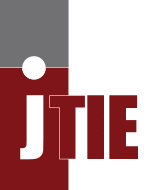Journal of Technology and Information Education 2022, 14(2):120-134 | DOI: 10.5507/jtie.2022.015
Possibilities of use of research-oriented teaching by teachers in technical education
- Univerzita Komenského v Bratislave, Slovenská republika
In the research study, the authors focus on the state of use of research-oriented teaching in technical education. The main goal of the research was to find out the differences between the state of knowledge and application of research-oriented teaching (BOV) in technical education at the first level of elementary school. Furthermore, we wanted to know how interested teachers are in teaching in a research-based way, how often they use research methods in teaching, and how they prepare for research-based teaching. The results of the research showed that the majority of teachers believe that pupils at the primary level are not capable of independent research, only with the teacher's instructions. The age of the teacher has no effect on the use of BOV, but the more interested the teachers were in science, the higher their tendency to indicate in the questionnaire greater independence of pupils in research. The paper was created with the support of grant VEGA 1/0033/22 Research-oriented teaching in mathematics, science and technical education.
Keywords: research-oriented teaching, education, modernization of technical education, personality of the teacher
Received: August 28, 2022; Revised: December 6, 2022; Accepted: August 28, 2022; Published: December 31, 2022 Show citation
References
- Alake-Tuenter, Ester, Harm J. A. Biemans, Hilde Tobi, Arjen E. J. Wals, Ida Oosterheert a Martin Mulder, (2012). Inquiry-Based Science Education Competencies of Primary School Teachers: A literature study and critical review of the American National Science Education Standards. International Journal of Science Education, roč. 34, č. 17, s. 2609-2640.
 Go to original source...
Go to original source... - CVTISR, (2022). Štatistická ročenka školstva - základné školy. https://www.cvtisr.sk/cvti-sr-vedecka-kniznica/informacie-o-skolstve/statistiky/statisticka-rocenka-publikacia/statisticka-rocenka-zakladne-skoly.html?page_id=9601
- Činčera, Jan, (2014). Význam nezávislých expertních center pro šíření badatelsky orientované výuky v České republice. Scientia in educatione, roč. 5, č. 1, s. 74-81.
 Go to original source...
Go to original source... - Dostál, J. a Kožuchová, M. (2016). Badatelský přístup v technickém vzdělávání : teorie a výzkum. Olomouc : Univerzita Palackého.
 Go to original source...
Go to original source... - Dostál, J. (2015). Olomouc : Badatelsky orientovaná výuka : pojetí, podstata, význam a přínosy. Olomouc: Univerzita Palackého. DOI:10.5507/pdf.15.24443935
 Go to original source...
Go to original source... - Dostál, J., Janu, M., Bal, B., Nuangchalerm, P., Stebila, J. (2016). Possibilities of Application of Inquiry - Based Learning when Developing the Thinking of Pupils with Mild Intellectual Disability and Behavior Disorders - Comparative Research. In 10th annual International Technology, Education and Development Conference. Valencia : Spain.
 Go to original source...
Go to original source... - Duncan, Ravit Golan, Vicky Pilitsis a Melissa Piegaro, (2010). Development of Preservice Teachers' Ability to Critique and Adapt Inquiry-based Instructional Materials. Journal of Science Teacher Education, roč. 21, č. 1, s. 1-14.
 Go to original source...
Go to original source... - Fazio, Xavier, Wayne Melville a Anthony Bartley, (2010). The Problematic Nature of the Practicum: a Key Determin1,27ant of Pre-service Teachers' Emerging Inquiry-Based Science Practices. Journal of Science Teacher Education, roč. 21, č. 6, s. 665-681.
 Go to original source...
Go to original source... - Fridrichová, Petra. 2018. Analýza zistení o stave školstva na Slovensku. [online]. [cit. 25. február 2022]. Dostupné z: https://analyza.todarozum.sk/docs/449899001xs1a/#rozhovor-o-teme-a-vyklad-v-zs
- Gavora, Peter a Jiří Mareš, (1998). Anglicko-slovenský pedagogický slovník. Bratislava: Iris.
- Guncaga, J., Koreňová, L. & Hvorecký, J. (2019). Calculators as Facilitators of Understanding Computational and Mathematical Contexts. Open Education Studies, 1(1), 177-183. https://doi.org/10.1515/edu-2019-0012
 Go to original source...
Go to original source... - Hall, R. a kol. (2019) Analýza zistení o stave školstva na Slovensku: To dá rozum, Bratislava: MESA10. Dostupné na htpps://analyza.todarozum.sk
- Held, Ľ. a kol. (2019). Koncepcia prírodovedného kurikula pre základnú školu 2020. Trnavská univerzita v Trnave.
- Kožuchová, M. (2015). Bádateľský prístup na primárnom stupni ZŠ. In: Reiterová, M. (ed) Bádateľské aktivity vo vzdelávaní. Bratislava : Štátny pedagogický ústav, s. 164-176.
- Losh, S. C., & Nzekwe, B. (2011). Creatures in the classroom: Preservice teacher beliefs about fantastic beasts, magic, extraterrestrials, evolution and creationism. Science & Education, 20 (5-6), 473-489.
 Go to original source...
Go to original source... - Mojžiš, M. (2021). Kto víťazí? Pravda? In: Časopis .týždeň. roč. 18, č. 47, s. 42-43.
- Piaget, J. (1997). Psychológie dítěte. Praha : Portál, 1997. 143 s.
- Rikmanis, I., Logins. J., Namsone, D. (2012). Teachers Views on Inquiry-based Science Education. In 1st international profiles conference. Bolte, C. 2012. Inquiry-Based science educational in Europe: reflections from the PROFILES project: book of invited presenters. Berlin : Freie Universität, 2012. s. 14-16.
- Stebila, J. a Hatvanyi, N. (2022). Výučbové moduly s experimentmi v bádateľsky orientovanom technickom vzdelávaní. Košice: EQUILIBRIA, s. r. o.
- Stebila, J. (2016). Aktuálne prístupy k inovatívnemu ponímaniu technického vzdelávania. In Technika a vzdelávanie. Banská Bystrica : Univerzita Mateja Bela, Fakulta prírodných vied, 2016. roč. 5, č. 1, s. 47-50.
- Stebila, J., Žáčok, Ľ. (2019). Transformácia a zmeny technického vzdelávania. In Technika a vzdelávanie. ISSN 1339-9888. Banská Bystrica : FPV UMB, vol. 7, no. 2, s. 5-10.
- Stuchlíková, I. (2010). O badatelsky orientovaném vyučováni. In: PAPÁČEK, M. (ed.). Didaktika biologie v České republice 2010 a badatelsky orientované vyučování (DiBi). České Budějovice: Pedagogická fakulta Jihočeské univerzity v Českých Budějovicích, s. 129-135.
- Škoda, J. a Doulik, P. (2009). Vývoj paradigmat přírodovědného vzdělávání. Pedagogická orientace č. 3, s. 24-44.
- Tomšik, R. (2017). Kvantitatívny výskum v pedagogických vedách: Úvod do metodológie štatistického spracovania. Nitra: Univerzita Konštantína Filozofa v Nitre.
- Vermeersch, J. (2005). Začněme s ODL. Apeldoorn : Garant, 2005. s. 48-52.
 Go to original source...
Go to original source... - Vigotskij, L. S. (2004). Psychologie myšlení a řečí. Praha : Portál, 135 s.


